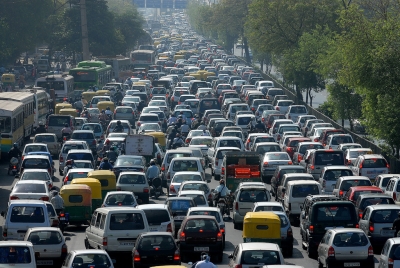
The new traffic rules under the Motor Vehicles (Amendment) Act 2019, came into force in many states on September 1. Under the Act, heavy fines are imposed for offences such as over-speeding, driving under the influence of alcohol and driving without states are not happy with the hefty fines and have opted to reduce the quantum of fines as suggested. What is the scope of the penalties imposed under it?
The Motor Vehicles Act is an Act of Parliament which regulates all aspects of road transport vehicles. The Motor vehicles (Amendment) Bill, 2019, which sought to make changes to the 1988 Act, was passed in the Rajya Sabha in July and in the Lok Sabha in Aught. The new traffic rules with sticker penalties, under the 2019 Act, came into effect on September 1.
How have the penalties been increased under the recently amended Act?
- The penalties for breaking traffic rules have gone up multi-fold. For driving without a license, the new fine is ?5000, which is 10 times the earlier fine of ?500.
- The maximum penalty for driving under the influence of alcohol has been increased from ?2000 to ?10000.
- For speeding or racing, the fine has been increased from ?500 to ? 5000.
- Not wearing a seatbelt while driving would attract a fine of ? 1000 as against the earlier fine of ?100.
- If a vehicle manufacturer fails to comply with motor vehicle standards, the penalty will be a fine of up to ?1 Lakh.
- The Central government may increase the fines by 10% every year.
Why are the other provisions as per the new Act?
- The new Act has extended the period for renewal of driving licenses from one moth to one year after the date of expiry.
- The Act also promises to protect those who render emergency medical or non-medical assistance to a victim of an accident, from any civil or criminal liability.
- The minimum compensation for death or grievous injury in hit-and-run cases has been increased from ?25000 to ?2 Lakh in case of death, and from ?12500 to ?50000 in case of grievous injury.
- The central government will develop a scheme for cashless treatment of road accident victims during the ‘golden hour’ – the time period of up to one hour following a traumatic injury, during which the likelihood of preventing death through prompt medical care is the highest.
- The Act requires the Central government to constitute a Motor Vehicle Accident fund, to provide compulsory insurance cover to all road users in the country.
Picture Credit : Google

